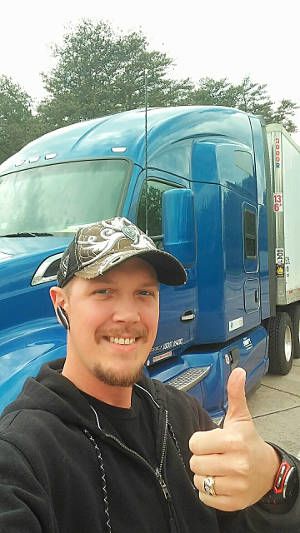Using Insurance For DOT Or Nah?
Topic 12933 | Page 1
Charlie, it's probably just easier to pony up the money yourself.
BTW, here's my experience: my regular doctor does an "industrial clinic", doing medical stuff for local warehouses. He also does official DOT physicals there.
I asked him if my insurance would pay for the DOT physical, he said " No". Sixty bucks!
DOT:
Department Of Transportation
A department of the federal executive branch responsible for the national highways and for railroad and airline safety. It also manages Amtrak, the national railroad system, and the Coast Guard.
State and Federal DOT Officers are responsible for commercial vehicle enforcement. "The truck police" you could call them.
My primary physician is a DOT examiner (as well as an FAA examiner) but won't do a DOT physical on an insurance claim. And he's been my doc for awhile.
I use a chiropractor up the road for my renewals (he did my original 6 years ago).
Keep in mind also - a "3rd party physical", typically DOES NOT DO DRUG TESTING.
When you get a company physical (as in orientation/hire), it is usually at the companies chosen clinic, and they WILL do drug testing as part of that physical (pre-employment drug screening).
Generally - DOT physicals do not require substance abuse screening, for the issuance of a Medical Certificate (as of current rules).
Rick
DOT:
Department Of Transportation
A department of the federal executive branch responsible for the national highways and for railroad and airline safety. It also manages Amtrak, the national railroad system, and the Coast Guard.
State and Federal DOT Officers are responsible for commercial vehicle enforcement. "The truck police" you could call them.
HOS:
Hours Of Service
HOS refers to the logbook hours of service regulations.
Thanks guys.
I asked him if my insurance would pay for the DOT physical, he said " No". Sixty bucks!
I gotta chuckle out of this, LOL.
DOT:
Department Of Transportation
A department of the federal executive branch responsible for the national highways and for railroad and airline safety. It also manages Amtrak, the national railroad system, and the Coast Guard.
State and Federal DOT Officers are responsible for commercial vehicle enforcement. "The truck police" you could call them.
New Reply:
New! Check out our help videos for a better understanding of our forum features

















Preview:








 TT On Facebook
TT On Facebook
Hello TT, My insurance provider allows 1 free physical per year. The DOT Physical is relatively inexpensive ($60-$90) compared to the workup I usually get ($240+).
The only diffrence I can note between my typical annual physical & the DOT is the drug & eye test. The usual workup includes cholesterol count, lipids, and various other bloodwork that DOT doesn't (to my knowledge) require. I've heard other drivers say they simply go to a FMCSA practionioner & they sometimes will just fill out the paperwork associated with the DOT free of charge since you're getting the Full Monty anyway.
I just don't want to be surprised by a potentially hefty invoice if my paperwork looks funny to Cigna later (especially when anyone can walk into a CVS minute clinic & get a DOT Physical for peanuts).
Does anyone use their insurance for their DOT Physical? What has been your experience?
Thanks.
CSA:
Compliance, Safety, Accountability (CSA)
The CSA is a Federal Motor Carrier Safety Administration (FMCSA) initiative to improve large truck and bus safety and ultimately reduce crashes, injuries, and fatalities that are related to commercial motor vehicle
FMCSA:
Federal Motor Carrier Safety Administration
The FMCSA was established within the Department of Transportation on January 1, 2000. Their primary mission is to prevent commercial motor vehicle-related fatalities and injuries.
What Does The FMCSA Do?
DOT:
Department Of Transportation
A department of the federal executive branch responsible for the national highways and for railroad and airline safety. It also manages Amtrak, the national railroad system, and the Coast Guard.
State and Federal DOT Officers are responsible for commercial vehicle enforcement. "The truck police" you could call them.
Fm:
Dispatcher, Fleet Manager, Driver Manager
The primary person a driver communicates with at his/her company. A dispatcher can play many roles, depending on the company's structure. Dispatchers may assign freight, file requests for home time, relay messages between the driver and management, inform customer service of any delays, change appointment times, and report information to the load planners.